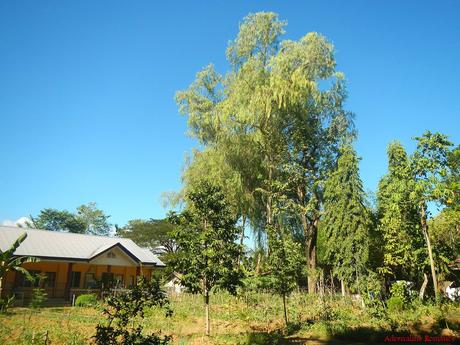
Are you sure that the fruits, vegetables, and grains that you are eating are safe and good for you? Chances are, it’s not. Sadly, that is the consequence of commercial farming, which is virtually the only way to feed millions of people. You see, farmers use synthetic chemicals to improve the yield of their crops and pesticides to protect their produce from the ravages of pests. While these substances can surely help in improving the volume of harvested crops, they also find their way into our bodies through the food we eat. They can wreck untold havoc in our systems without us knowing it!
Natural and organic farming—farming that is done through the ancient times before agricultural chemicals were introduced—is the ideal solution in order to produce safe and nutritious crops. However, like many other things that are traditional, it is becoming a lost trade because it is time-consuming, labor-intensive, low-yield, and expensive. It is then good to know that pockets of organic farms like the Cebu Southern Ecological Farm in Naga, Cebu still engages in this practice. We were lucky to have been invited to tour this amazing farm during our Outpax-powered HealthCamp.
Under the cool shade of a large mango tree, we began our HealthTalk, one of the things in the agenda of HealthCamps. It was pretty cool stuff; we never experienced having class in an outdoor classroom before. The fact that we were in a farm that is the subject of the discussion itself helps us internalize and understand the information better than in any indoor classroom.
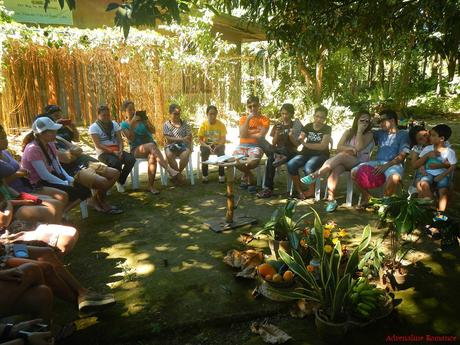
This is Engineer Gloria Pocot, the director of the Cebu Southern Ecological Farm (CSEF). She was once a certified chemical engineer until she realized that the unnatural way and application of agricultural chemicals used in commercial farming are doing more harm than good. She abandoned her chemical engineering career and adopted hands-on organic farming.
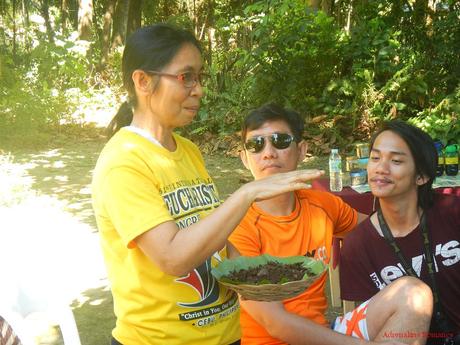
These are just some of the produce from her farm. Check out those healthy papayas, eggplants, bananas, and more.
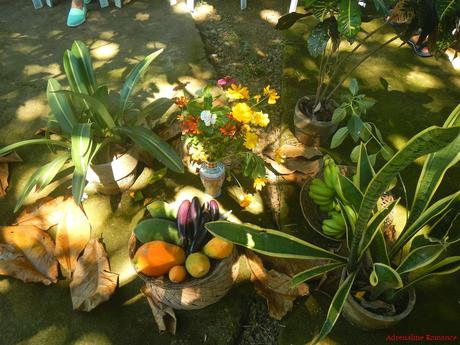
Fruit and vegetable juices ferment naturally. These are samples of various organic juices in the process of natural fermentation. After some time, they become wine or vinegar derived from fruits or vegetables. They can also be made to fertilize crops.
Check out the bottle labeled molasses. Molasses is a byproduct of the production of the refining of sugarcane into various forms of sugar. In this organic farm, molasses is used to enrich nutrients and improve the quality of compost.
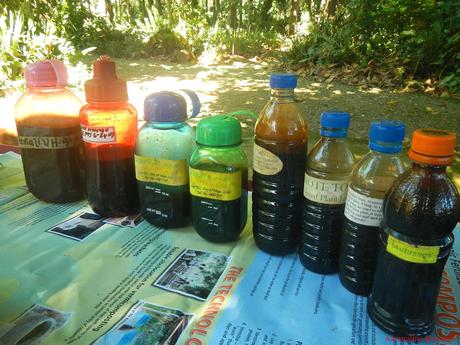
Compost is an important ingredient in organic farming. It is made of leaves, branches, and other organic matter that has naturally decomposed for a period of weeks or months. Compost is used as an effective fertilizer and a catalyst for positive soil amendment.
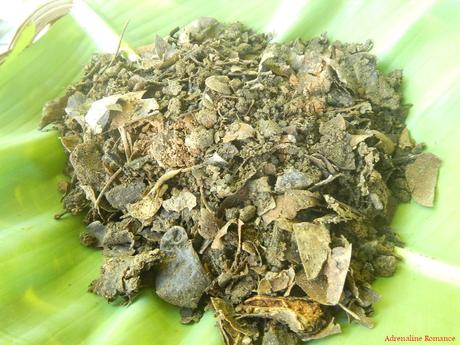
These are naturally produced fertilizers and cattle feed. No synthetic chemicals are used in their production.
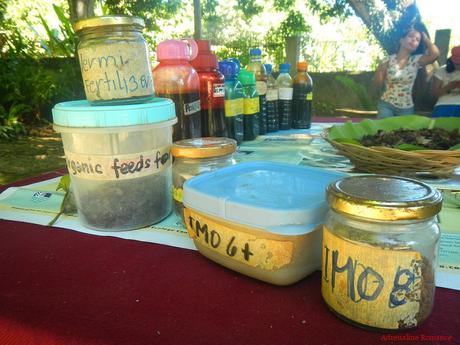
This viscous concoction of kalamansi and cucumber makes an effective, cool, and all-natural hand lotion. It smells really good too!
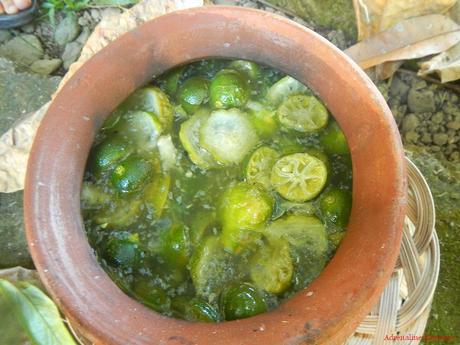
Let’s check out the CSEF. Engr. Pocot privately acquired the parcel of cornland in 1993 and has developed it into a fully functional eco-farm. She passed her training in organic farming to the locals in the area who often volunteer to maintain the place. Ma’am Gloria teaches farmers the proper, safe, and eco-friendly way to grow crops.
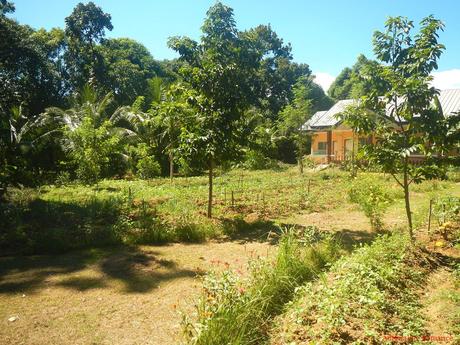
Don’t be fooled by the diminutive size of these green and red peppers. Called sili in the local dialect, they are among the hottest peppers on the planet! One or two silis squished in toyo (a simple all-around dipping sauce made of vinegar, soy sauce, garlic, and onions) can bring a delightfully burning sensation to the palate to any food item dipped in the toyo.
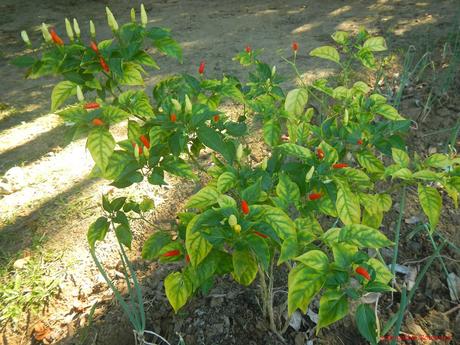
We never saw moringa trees (locally known as kamunggay or malunggay) grow this tall! In fact, these trees are as tall as two-story houses!
Moringa leaves are used as main ingredients for chicken tinola and utan bisaya (vegetable soup). They are packed with vitamins and minerals.
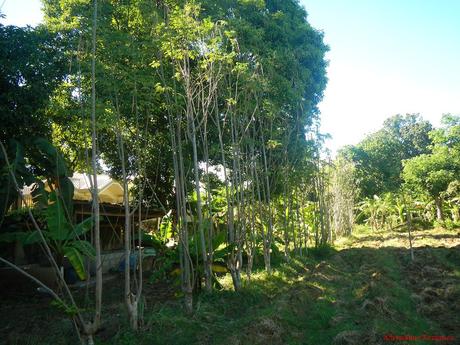
The fertile soil allows these beautiful spring onions to grow fat and healthy.
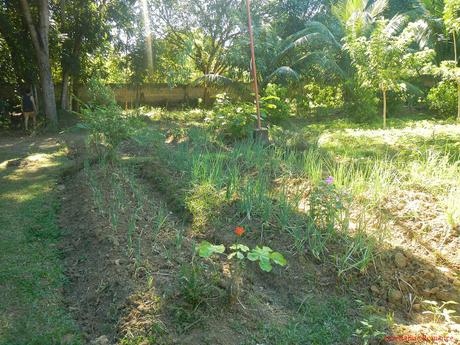
You might wonder why there are so many kinds of crops in the CSEF. Why not simply grow one kind of crop? According to Ma’am Gloria, instituting a diversified cropping system is more advantageous because each kind of crop works to compliment another.
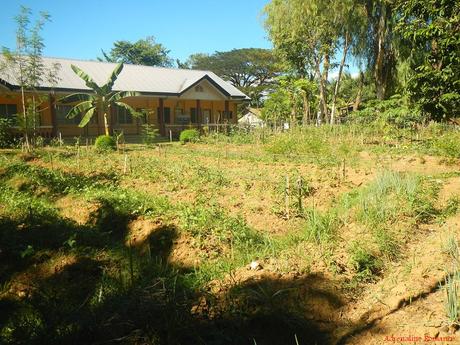
Large, thick-canopied trees like these form the perimeter of the farm. They have been there for years, and Ma’am Gloria did not cut them unlike in other farms where they are removed to make way for arable land. The trees, as explained by Ma’am Gloria, serves as a buffer for winds, pollutants, and sea salt that can harm more delicate crops.
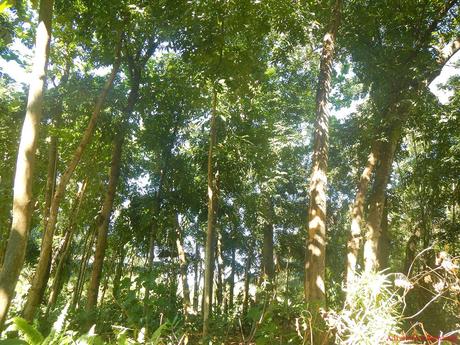
Below the trees are dead leaves which are used to fertilize the soil or to make compost. They aren’t incinerated, which is opposite of what Filipino households usually do (i.e., they burn dry leaves along with other garbage).
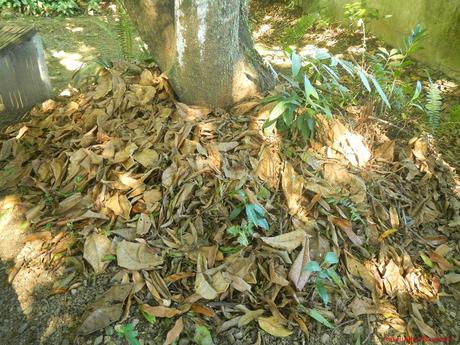
At the other end of the farm is this large, sheltered compost pit, which is divided into several sections.
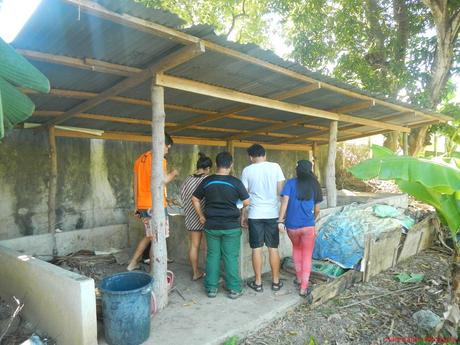
Ma’am Gloria showed us the right way to create compost. Dried leaves and non-toxic organic waste are placed in a pit and layered with humus, or garden soil. The mix is then watered and, in case of the CSEF, molasses. Other farms mix earthworms with the mixture to help in decomposing the organic matter.
In a matter of weeks or months, the stuff is transformed in to a rich, nutrient-filled soil-like substance which is known as compost. Properly processed compost smells really good—the smell of air after a refreshing rain mixed with the scent of citrus fruits.
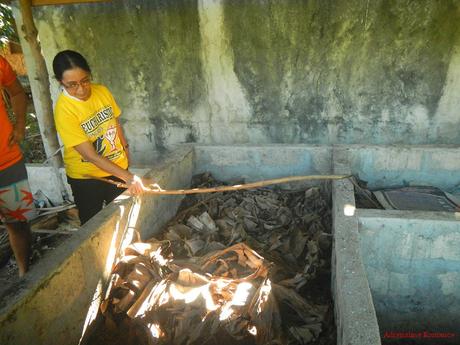
Right at the entrance of the farm is this cool and shady playground where local kids can have an afternoon full of fun.
After the one-and-a-half-hour farm tour and HealthTalk, Ma’am Gloria served us some cold and very refreshing kalamansi-cucumber tea before we departed for Tuble Marine Sanctuary.
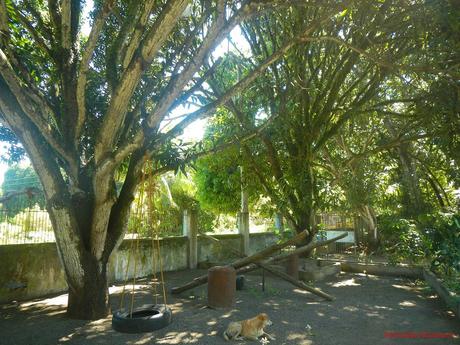
Organic farming is expensive, timely, and labor-intensive. Thus, without new technologies to enhance this method of farming, it is non-viable in a commercial sense.
However, it is definitely an eco-friendly way to grow the crops that you want in your own backyard. Because you are growing your crops in an organic and natural way, you are assured that the meals you eat are safe, pure, high-quality, and not sprayed with pesticides and synthetic chemicals.
Far too long, we have been eating junk food and so-called organic ingredients that are actually treated with chemicals. Needless to say, these are harmful to our health. Cebu Southern Ecological Farm opened our eyes to a healthy, clean way to produce ingredients for our meals served on our daily table.
Thank you very much, Engr. Gloria Pocot, for showing us that Mother Nature’s way is still the best.
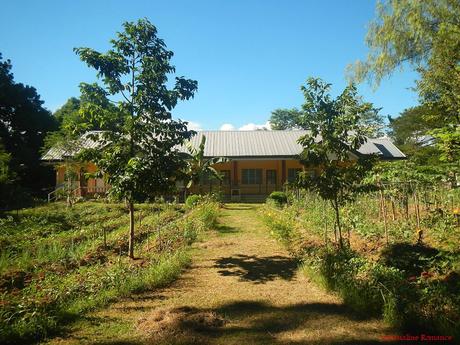
This event is powered and organized by Outpax. To organize and join events, click here.
For more information about the Cebu Southern Ecological Farm and to book a tour, call Engr. Gloria Pocot at 0999-9745478.
For more information and details on Outpax HealthCamps, get in touch with Eric Tuñacao (OutPax) at 0942-8097700. You can also send him a personal message on Facebook.
Check out other exciting events and communicate with other outdoorspeople by visiting the Outpax Facebook Page.

